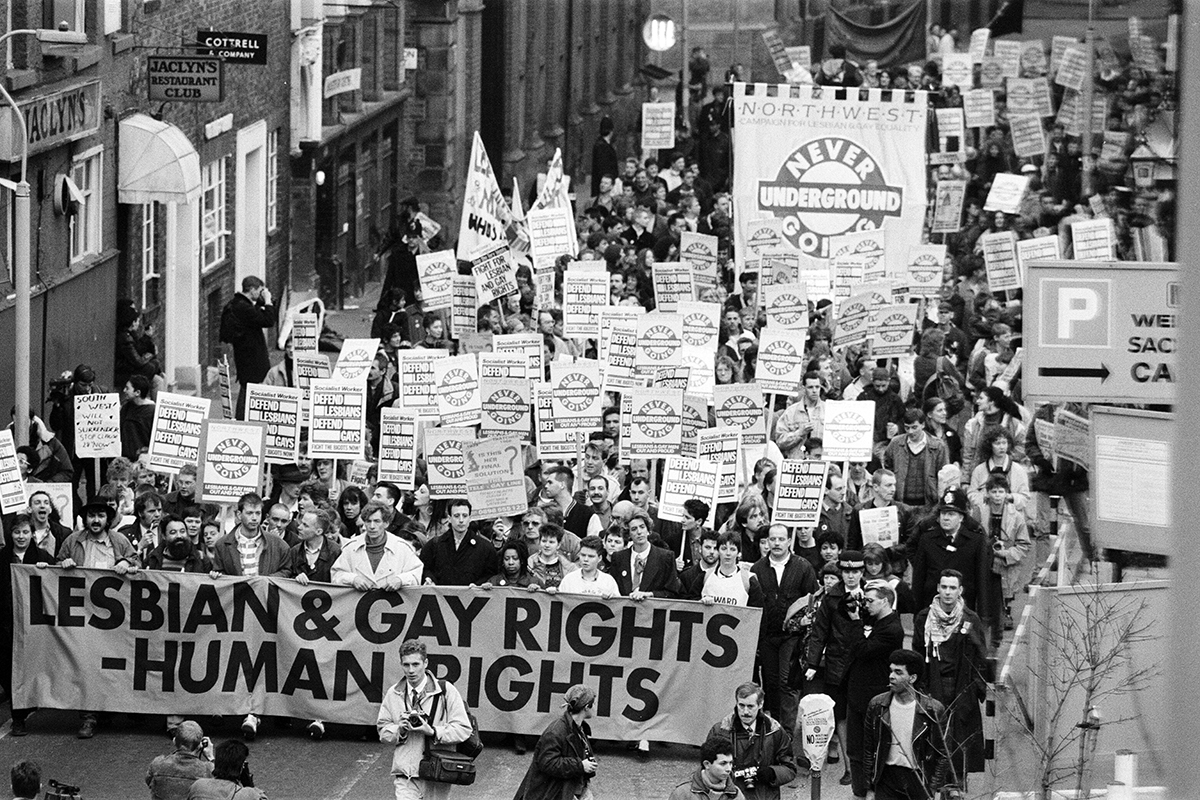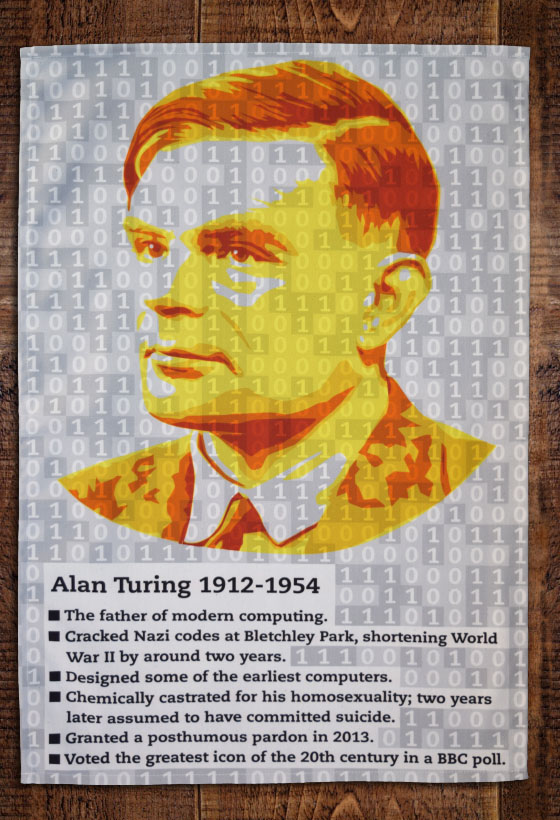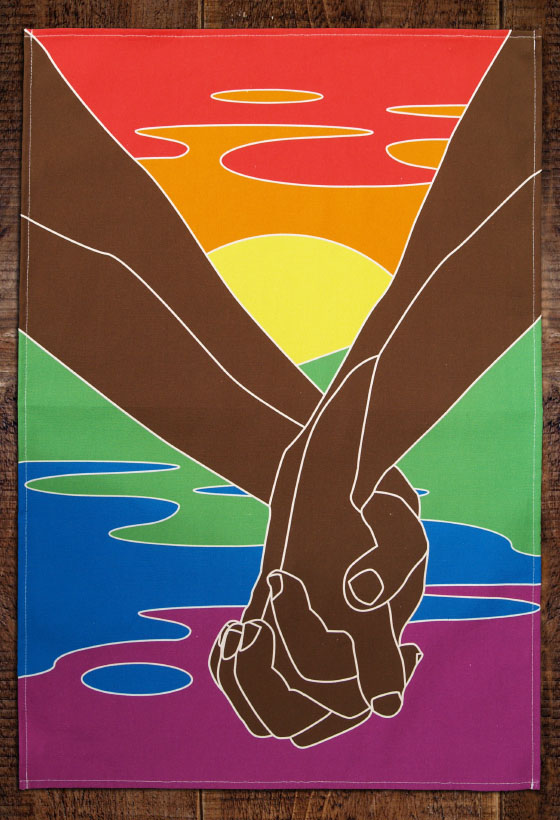LGBT+ History Month: A Word for Freedom this February
Posted by Luke on 11th Feb 2020
In the spirit of LGBT+ History Month, we've just donated £1,000 to the Peter Tatchell Foundation for Human Rights. Let's have a look at where the idea of this 'history month' comes from - and its significance in the war for freedom of thought.
February is LGBT+ History Month.
We have a whole
28 29 days to remember the history of the struggle for equal rights, and the amazing contributions of LGBT+ people to our lives.
It's been quite a ride.
From the decriminalisation of homosexuality in the 1960s, to the support for the miners' strikes in the 1980s (as wonderfully depicted in the 2014 film 'Pride').
From Oscar Wilde, to Alan Turing, to Ellen DeGeneres (links go to stories about these guys on our blog).

Censorship and Section 28
What's the deal with February though? It's a bit of a drab month. Why not choose a more spring-like month where you might actually see a rainbow?
Well in the UK it's all to do with this little piece of now-dead legislation called 'Section 28'.
Section 28 (also known as 'Clause 28') of the 1988 Local Government Act was a law designed to gag teachers. It said that a local authority:
"Shall not intentionally promote homosexuality or publish material with the intention of promoting homosexuality" or "promote the teaching in any maintained school of the acceptability of homosexuality as a pretended family relationship."
Though technically it wasn't illegal for teachers to tell you it was OK to be gay, the law had the effect of keeping them quiet and inhibiting anti-discrimination initiatives.
What was this law trying to hide? I'm with the Founding Fathers on the freedom of speech issue, and not keen at all on things which have the effect of silencing people.
My mother Bea was a teacher in the 1980s. She still spoke out in support of the LGBT+ community in schools. But she remembers the feeling of repression at the time.
No one was actually prosecuted, but student support groups were closed and people self-censored.
It's this self-censorship that I find most scary. We tend to think of threats to our freedom of thought as being explicit: "don't say X or you will be locked up or killed."
But sometimes it's more subtle: a climate of intolerance which has the effect of silencing alternative viewpoints.
Section 28 created exactly that sort of climate.

Click to view our tea towel in tribute to the great Alan Turing.
A fight for LGBT+ equality
Anyway, the Scots (often ahead of the game) got rid of the legislation in the year 2000 as soon as they got devolution.
The first attempt to repeal the law in England and Wales was in February 2000, but it was defeated by a vote in the House of Lords.
The Commons had another go in early 2003, and Section 28 was finally ditched in July that year.
In 2009, David Cameron apologised for the Conservative party's historic support of Section 28. Of course, he'd backed it himself right up to 2003.
Talk about being on the wrong side of history.
But he changed his mind - and it's OK for people to do that. Prime Minister Cameron subsequently passed the Marriage Act 2013, which legalised gay marriage.
I'll no doubt change my own mind about things over the coming decades. And so will you. If not, what does that say about our interest in truth over dogmatism?

Click to view our LGBT+ rights tea towel
Self awareness this LGBT history month
LGBT+ History Month has been celebrated in the UK by the 'School's Out' campaign since 2005. Maybe the significance of February dates to that first repeal attempt in February 2000, or the second attempt in 2003.
The eagle-eyed among you might note the significance of a (normally!) 28-day month recalling a certain Section 28.
Or maybe it's just a quiet month in the school calendar.
In the spirit of LGBT+ History Month, week we donated £1,000 to the Peter Tatchell Foundation (they support campaigns for LGBT+ human rights throughout the world, as well as other vital human rights campaigns), as part of our ongoing giveaway initiative.
So here's to LGBT+ History Month. History is such a powerful thing. Maybe it can help us unearth the 'Section 28s' still lurking in our own minds, censoring the things we'd rather not hear about.
Want to share your own stories about Radical History and connect with our growing community of international progressives? We have a new group on Facebook dedicated specifically to this purpose. Click here to join and learn more.
